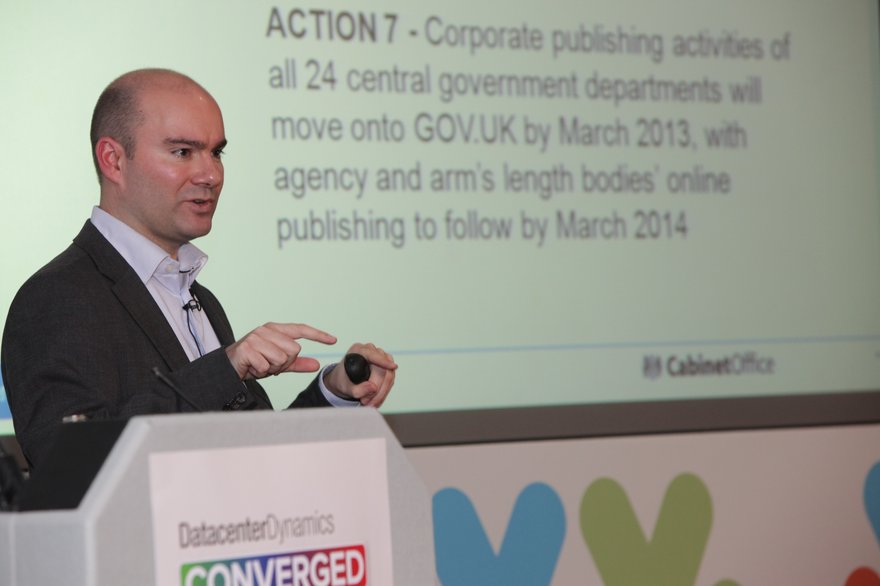The UK Government estimates it has saved about £145m since introducing tighter controls that govern how departments and bodies spend money on ICT.
Speaking at DCD Converged London today, David Cotterill, the Deputy Director for Strategic Change and IT Reform for the UK Cabinet Office, said the Government has been pushing forward with an agenda of change which is not only designed to change the way the government procures and uses IT and data center services, but also boost the national economy.
He said at present the government spends more than 1% of GDP on its IT.
“Often when you are working with the day-to-day blend of IT projects you lose that context of the impact that this has on the budget,” Cotterill said.
“We want to remind people that this is the context in which we operate. We need to cut the amount of money that we spend on IT and we need to transform the way the government delivers services.”
A major part of this agenda for change includes a shake-up of how the government works with IT service providers.
It has added additional control for projects of more than £100m.
“Few organizations are good enough for us to take the risk of managing a contract over that amount so we are trying to unbundle services – you can no longer say IT is one thing and that we will leave it to one supplier,” Cotterill said.
This unbundling includes desktop services, network, hosting and application services.
“This gets us a much more pluralistic marketplace and allows contracts to go to smaller players.”
Cotterrill said the UK Government spends about £1.2bn a year on hosting, and has about 12,500 cabinets running in facilities across the country.
“It is the equivalent of a large data center,” Cotterill said.
About 80% of its spending is centered around 24 data centers, and about 60% of this spend goes to six key providers.
“We have a pretty acute IT problem,” Cotterill said.
“We know that growth often happens with small- to medium-sized enterprises expanding and delivering innovative IT services but the IT organizations are channelling a very large amount of their money to a small amount of suppliers. It is not good for the UK Government and it is not good for the economy.”
Cotterill said he believes large legacy contracts have left the government short changed as the price of IT has come down.
“We went through a huge wave of outsourcing equipment and IT. There were various models of PFI initiatives with departments saying ‘IT, well that’s not effectively very important so we will outsource everything to a single supplier’. It is what we call ‘Black Box’ contracts - long ternm deals,” Cotterill said.
“Initially we would contract for six years, then suppliers would come in and say ‘wait, it would be expensive to change all this, we could extend for another year and give you a discount’.
“That way of thinking is out. Now we have a policy saying when a contract comes to an end there is no extensions - you will compete the service and we will drive competition.
“We believe the 10% reduction in a pirce offered 6 years ago is not good enough.”
With the government’s ICT strategy released 18 months ago proving its worth, the benefits of this different approach area already being seen.
Cotterill said the government will look to drive consolidation and use cloud services wherever possible.
Just recently it added 500 new cloud suppliers to its cloud store for government departments as part of the second run of the program.
It is also looking to free up the delivery of network services.
“Each department had contracted separately for its own network, and all this business has gone to two suppliers, which didn’t create a lot of competition,” Cotterill said.
“”We have now created some commercial frameworks which effectively open up the marketplace to much more suppliers.
Cotterill said this has already had some interesting outcomes. Recently the UK government paid awarded a network contract to a small provider that it didn’t even consider to be in the running for the tender because of its lower cost.
It is also about government bodies and departments coming together to share network resources through aggregated services.
The government also recently announced its new Open Standards principal which says open for it means royalty free.

